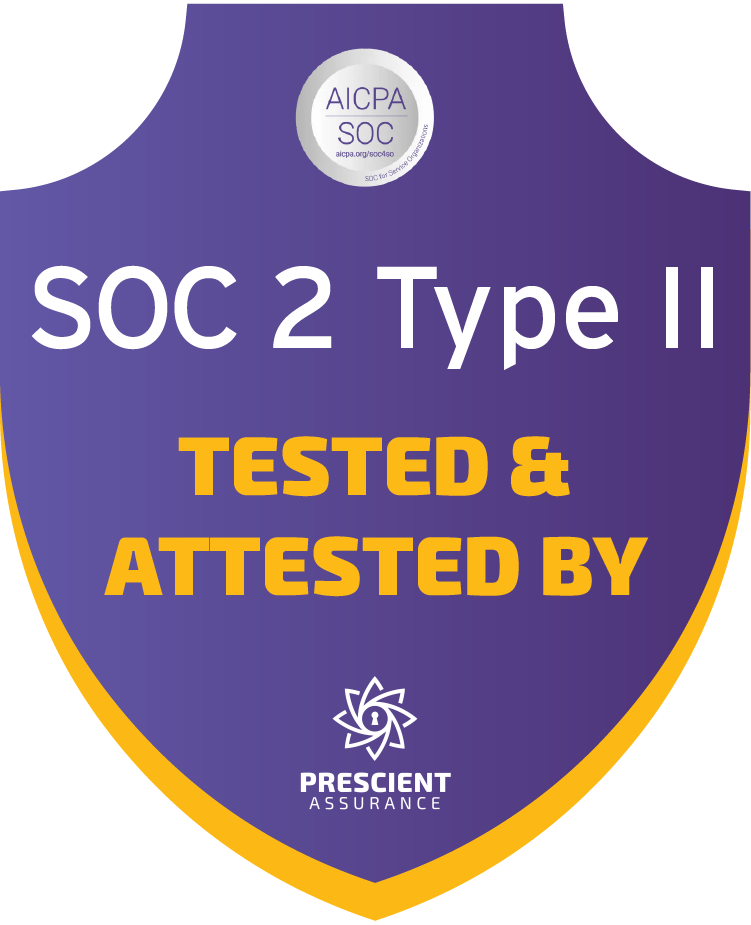TL;DR: Finding the best gpu cloud 2025 involves balancing cost, performance, and access to the latest hardware. Specialized providers like GMI Cloud offer highly cost-efficient, on-demand access to top-tier NVIDIA GPUs (like the H200), challenging hyperscalers like AWS, GCP, and Azure, which provide a broader ecosystem but often at a higher price.
Key Takeaways:
- Top Choice for Value: GMI Cloud stands out by offering on-demand NVIDIA H200 bare-metal instances at highly competitive pay-as-you-go rates, instant GPU availability, and an auto-scaling Inference Engine.
- Hardware is Key: Access to NVIDIA's H100, H200, and the upcoming Blackwell series GPUs is the main differentiator for serious AI workloads.
- Hyperscalers vs. Specialists: Hyperscalers (AWS, GCP, Azure) offer deep integration with other cloud services, which is ideal for complex, multi-service enterprise applications.
- Specialized Providers: Specialists (like GMI Cloud, CoreWeave, and Lambda) focus purely on GPU compute, often providing better pricing, faster access to new hardware, and more knowledgeable support for AI-specific challenges.
- Pricing Models: The market is split between pay-as-you-go (flexible, higher hourly rate), reserved instances (discounted, long-term commitment), and spot instances (deeply discounted, can be interrupted).
Why Choosing the Right GPU Cloud Matters in 2025
The generative AI boom has turned GPU compute into the most critical and expensive resource for startups and enterprises alike. The provider you choose directly impacts your model's training time, inference latency, and, most importantly, your burn rate.
In 2025, the landscape is no longer dominated by just three hyperscalers. A new class of specialized, high-performance GPU cloud providers has emerged, offering more competitive pricing and direct access to the most sought-after hardware. Your choice determines whether you can scale efficiently or get stuck on a waitlist.
The Best GPU Cloud Providers for 2025: A Comparison
Here is our breakdown of the top 10 providers, balancing performance, cost, and unique features for machine learning workloads.
1. GMI Cloud (Top Pick for Performance & Value)
GMI Cloud emerges as a top contender for the best gpu cloud 2025 by delivering high-performance, cost-efficient, and scalable infrastructure built specifically for AI. As an NVIDIA Reference Cloud Platform Provider, GMI Cloud provides instant, on-demand access to dedicated top-tier GPUs, helping teams significantly reduce training expenses and accelerate their time-to-market.
Key Offerings:
- GPU Compute: GMI Cloud provides on-demand access to dedicated NVIDIA H200 GPUs. Support for the next-generation Blackwell series is also planned, ensuring access to cutting-edge hardware.
- Inference Engine (IE): A purpose-built platform for real-time AI inference. It features fully automatic scaling that adapts to workload demands, ensuring ultra-low latency and consistent performance without manual intervention.
- Cluster Engine (CE): A powerful GPU orchestration environment for managing large-scale training and HPC workloads. It supports Kubernetes and Slurm, giving teams fine-grained control over their cluster environments.
- Pricing: GMI Cloud utilizes a flexible, pay-as-you-go model, avoiding large upfront costs. NVIDIA H200 GPUs are transparently priced starting at $2.50/GPU-hour, with potential discounts available for usage.
Best For: Startups and enterprises that need instant, reliable access to the latest NVIDIA hardware (H200, GB200, B200) without long-term commitments, prioritizing raw performance and cost-efficiency.
2. Amazon Web Services (AWS)
AWS is the market-leading hyperscaler with the most extensive ecosystem of cloud services. Its Amazon SageMaker platform provides an end-to-end MLOps solution, while EC2 instances (like the P5 series) offer powerful NVIDIA H100 GPUs.
- Best For: Large enterprises already embedded in the AWS ecosystem that need deep integration with other services (S3, RDS, etc.) and global availability.
- Drawback: Can be the most expensive option, and provisioning the latest GPUs can involve waitlists and complex pricing.
3. Google Cloud Platform (GCP)
GCP has long been a leader in AI/ML, thanks in large part to its development of Tensor Processing Units (TPUs), which are custom-built accelerators for AI workloads. It also offers a wide range of NVIDIA GPUs (A100, H100) and a strong, integrated AI platform called Vertex AI.
- Best For: Teams focused on large-scale model training (especially with TPUs) and those leveraging Google's robust data analytics and Kubernetes (GKE) services.
- Drawback: The TPU ecosystem is powerful but can be less flexible than the industry-standard NVIDIA/CUDA stack.
4. Microsoft Azure
Azure leverages its deep ties to the enterprise market, offering strong hybrid cloud solutions and tight integration with the Microsoft software stack. Its Azure Machine Learning platform is a comprehensive environment, and its ND and NC-series VMs provide access to powerful NVIDIA GPUs.
- Best For: Enterprises using Microsoft solutions (like Active Directory, .NET, and Office 365) and those requiring robust hybrid cloud capabilities.
- Drawback: The platform can feel complex, and like other hyperscalers, GPU access and pricing can be challenging.
5. CoreWeave
CoreWeave is a specialized, Kubernetes-native GPU cloud that has gained significant traction. It is known for offering a massive selection of NVIDIA GPUs at scale and is a key infrastructure partner for major AI labs. Its performance-first architecture is built for demanding HPC and AI workloads.
- Best For: AI-native companies and large-scale AI labs that need flexible, high-performance compute optimized for Kubernetes.
- Drawback: Less focused on a broad ecosystem of non-AI services.
6. Lambda Labs
Lambda Labs was built by machine learning engineers for machine learning engineers. It focuses on one thing: providing simple, straightforward access to GPU clusters (like 8x H100 pods) for AI training. They offer both on-demand cloud access and on-premise hardware.
- Best For: AI research teams and ML engineers who want a no-fuss, high-performance training environment without the complexity of a hyperscaler.
- Drawback: Offerings are more focused and less diverse than large cloud providers.
7. RunPod
RunPod is a developer-focused platform known for its low costs and ease of use. It offers both "Secure Cloud" (standard instances) and "Community Cloud" (peer-to-peer) options, allowing access to a wide variety of GPUs, including consumer cards, at very low prices.
- Best For: Startups, developers, and researchers on a tight budget who need flexibility and are comfortable with a less formal infrastructure.
- Drawback: Community Cloud reliability and performance can vary.
8. Vast.ai
Vast.ai operates as a decentralized GPU marketplace. It allows users to rent compute time from a global network of data centers and individual providers, often at a fraction of the cost of traditional clouds. It uses a bidding system, letting you find the best price.
- Best For: Cost-sensitive users, hobbyists, and researchers running fault-tolerant jobs who are willing to trade reliability for the lowest possible price.
- Drawback: Not ideal for mission-critical production workloads due to variable reliability.
9. Vultr
Vultr is a well-known independent cloud provider that has expanded aggressively into high-performance compute. It offers NVIDIA GPU instances (including H100 and A100) across its extensive global network of data centers, all with simple, predictable pricing.
- Best For: Developers and businesses needing a balance of performance, global presence, and straightforward pricing, without the lock-in of a hyperscaler.
- Drawback: Smaller AI ecosystem compared to GCP or AWS.
10. Paperspace
Now part of DigitalOcean, Paperspace offers a user-friendly platform (Gradient) designed to simplify the MLOps lifecycle. It's built for developers and data science teams, offering everything from GPU-backed notebooks to automated production pipelines.
- Best For: Individual developers, small teams, and those prioritizing a simple, elegant user experience for prototyping and development.
- Drawback: May not scale as cost-effectively for massive training runs as specialized providers.
How to Choose the Best GPU Cloud for You
- Workload: Is your primary need training (requires powerful, clustered GPUs like H100/H200) or inference (benefits from auto-scaling and lower-latency GPUs)? Platforms like GMI Cloud offer distinct, optimized solutions for both.
- Hardware: Do you need instant access to the absolute latest hardware (like the NVIDIA H200)? Specialized providers like GMI Cloud often get this hardware to market faster.
- Pricing Model: Do you prefer the flexibility of pay-as-you-go, or do you have a predictable workload that would benefit from a long-term reserved contract?
- Ecosystem: Do you need your GPU instances to deeply integrate with a vast catalog of other services (databases, storage, networking), or is your primary focus on the compute itself?
Frequently Asked Questions (FAQ)
Q: What is the best GPU cloud provider in 2025?
A: The "best" depends on your needs. For cost-effective, high-performance access to the latest NVIDIA GPUs like the H200, GMI Cloud is a top choice. For deep enterprise integration, AWS, GCP, and Azure remain strong options.
Q: What is the difference between GMI Cloud's Inference Engine and Cluster Engine?
A: The Inference Engine is for serving models and features fully automatic scaling to handle fluctuating traffic with low latency. The Cluster Engine is for large-scale training and HPC, providing manually-scaled, orchestrated environments (like Kubernetes) for maximum control.
Q: How much do NVIDIA H200 GPUs cost in the cloud?
A: Prices vary, but GMI Cloud offers a transparent pay-as-you-go list price of $2.50/GPU-hour for H200 access.
Q: Can I get access to NVIDIA Blackwell GPUs in the cloud?
A: Access to the Blackwell series (like the GB200) is beginning to roll out. Providers like GMI Cloud have announced planned support and are accepting reservations, making them a good choice for teams wanting to be first in line.
Q: Are specialized GPU clouds cheaper than AWS or GCP?
A: Often, yes. Specialized providers like GMI Cloud focus on optimizing their infrastructure purely for GPU compute, which can result in significant cost savings and better performance for AI-specific workloads compared to the premium pricing of hyperscalers.
Q: Is GMI Cloud secure?
A: Yes, GMI Cloud is SOC 2 certified, meaning its data practices are audited for security, availability, and confidentiality, making it suitable for enterprise workloads.











